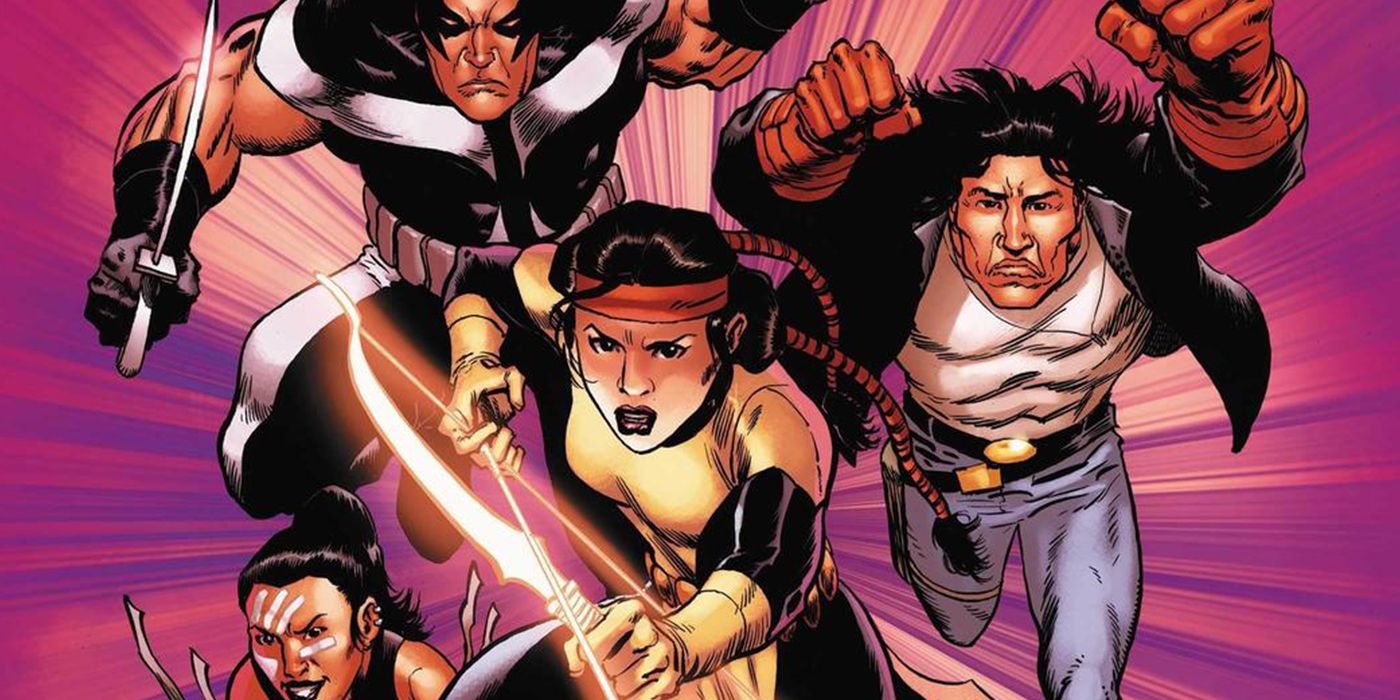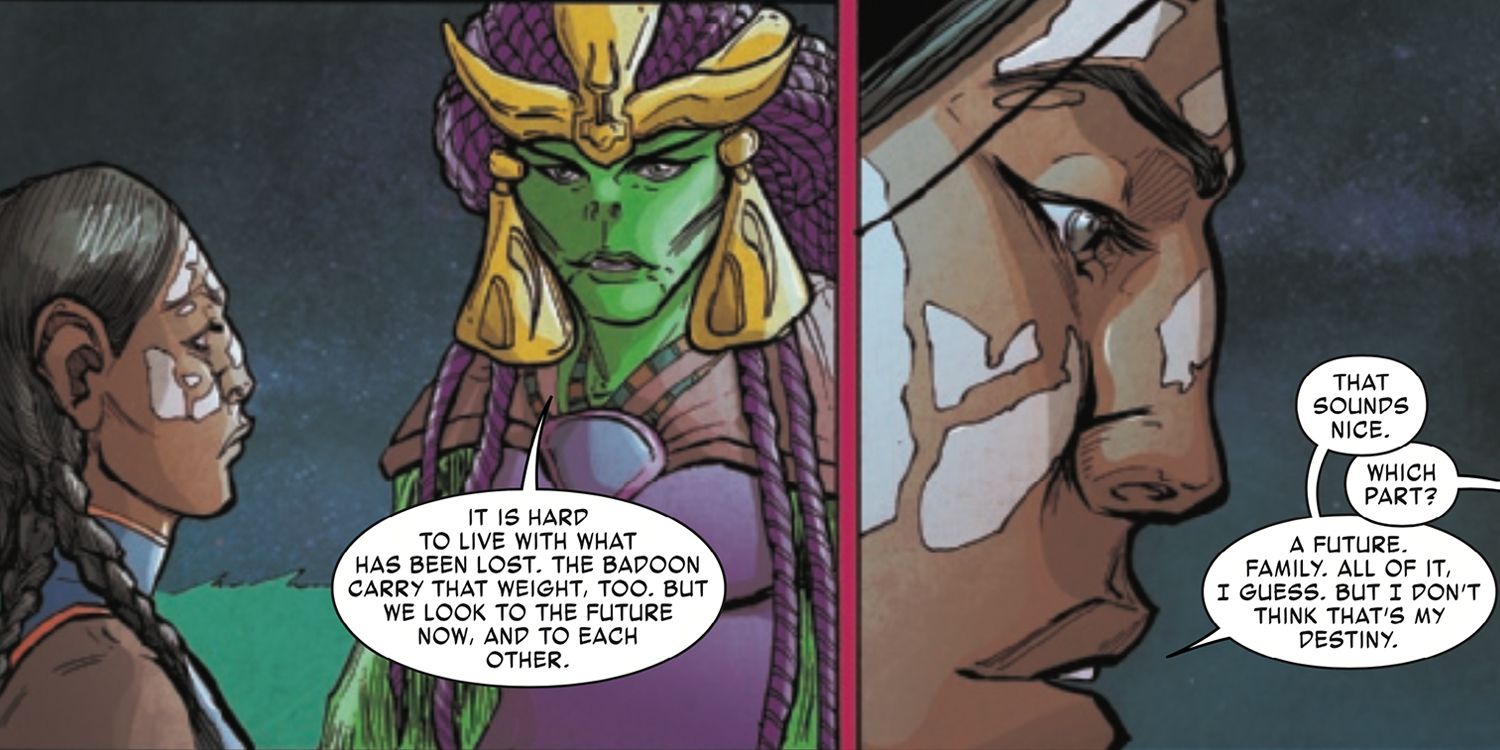Marvel's Indigenous Voices Redefines Its Cosmic Universe

Warning: This article contains spoilers for Marvel's Voices: Indigenous Voices #1.
A new chapter for Indigenous talent and characters at Marvel Comics is now in full swing with Marvel's Voices: Indigenous Voices #1. Marvel's newest entry in Marvel's Voices, a series spotlighting underrepresented writers, artists, and characters, Indigenous Voices #1 has brought together numerous Indigenous storytellers for an anthology with some of Marvel's biggest Native characters.
The stories range from cosmic, galaxy-trekking journeys like Rebecca Roanhorse, Weshoyot Alvitre, and Lee Loughridge's Echo: Hitting Back, to horror writer Stephen Graham Jones, David Cutler, Roberto Poggi, and Cris Peter's period piece, Silver Fox: Blue Moon; to Dani Moonstar's outreach to a young Native mutant in Darcie Little Badger, Kyle Charles, and Felipe Sobreiro's Mirage: Multi-Faceted. Bookending the issue is an introduction written and drawn by Jeffrey Veregge from the standpoint of the Watcher, and an afterword by Taboo and B. Earl. All together, they paint a rich portrait of Marvel's Indigenous heroes exploring what it means to be both Native and a superhero.
The significance of an anthology like Indigenous Voices #1 is that expands the notion of heroism within Marvel's brand to include culturally-specific narratives. By incorporating works from underrepresented storytellers about underrepresented characters, the immense diversity of superheroism that exists in the Marvel Universe is expanded even further through highlighting the unique perspectives of these characters.
Irish writer James Joyce once said that, "In the particular is contained the universal," and Rebecca Roanhorse's Echo story in particular embodies this idea of seeing the universal through the specific. Echo, a Deaf woman of Cheyenne and Mexican descent, travels to the planet of Geunee, unknowingly tricked by Loki into thinking that she is to defend the nonviolent Badoon women on the planet from a "swamp god." After arriving onto the planet, she discovers that the Badoon women have not sworn to nonviolence, and she tussles with them before their leader, Dara Ko Eke, calls off the fight. As Echo spends time with the Badoon, she uncovers the commonalities between their experiences and cultures. She bonds with them over their shared sense of loss and hope for the future.

With this story, Rebecca Roanhorse highlights the universality of Echo's experiences as an Indigenous woman by having her and the Badoon share moments of commiseration. Echo's longing for her community is reflected in her words: "Your home reminds me of a place I once knew. We called it the Rez, but it wasn't a real reservation. Just a spot us Native misfits could call home... but that's all gone now." Clearly, for Echo, there are aspects about Badoon culture that remind her of her own, positing this alien species as Indigenous in their own way. This is a major turn for Indigenous representation in comics, because the specifics of Echo's background are not viewed as a point of difference, but rather as a site of familiarity.
Because the Badoon relate to Echo's explicitly Native experiences, Roanhorse re-envisions space travel with an Indigenous lens, one that is built on cultural understanding rather than comparison. Upon arriving to the planet, Echo is not preoccupied with emphasizing the fact that the Badoon are an alien species to her. She instead participates in their culture, reversing the dynamic often seen with travel narratives where the "alien" people are seen as an unknowable Other.
In this light, Indigenous narratives are made literally universal through Echo's connections with the Badoon on a faraway planet. This works to extend the notion of the Indigenous as an experience that defies conventional borders. Anything is possible within the superhero genre, and Marvel's Voices: Indigenous Voices #1 shows that the future for Indigenous representation in Marvel Comics has never been brighter.
from ScreenRant - Feed https://ift.tt/394qrzD
via Whole story

Post a Comment